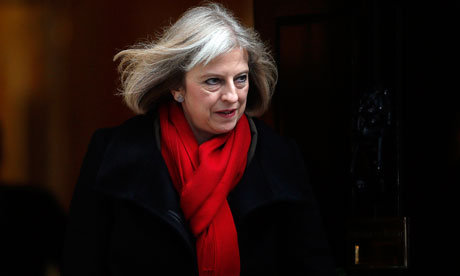Maneesh Chhibber: Can you explain how you wrote your Section 377 judgment?
I wouldn't like to comment on the Supreme Court judgment but that doesn't bar me from speaking about the rights of LGBTs, the Constitutional morality we talked about in the high court case, and the government's position.
Let me start with this — some speak of this as a 'western disease'. First of all, it is not western. Temple imagery and essential scriptures show there is some evidence of homosexuality being practised in this country... The British brought in Section 377 and there is the presumption that one of the reasons was (they feared) their army and daughters would be tainted by Oriental vices... What is so startling is that Section 377 travelled back to England. Later it was repealed, in the sense that their judicial committee recommended that for consenting adults it should not be a crime.
This is the position in almost all of Europe, US.
There are critical nuances of the (Supreme Court) judgment which I would not like to go into, but I would like to tell you about how far it is permissible for the State to legislate on the ground of public morality. What is envisaged by the Constitution is not popular morality. Probably public morality is the reflection of the moral normative values of the majority of the population, but Constitutional morality derives its contents from the values of the Constitution.
For instance, untouchability was approved by the majority, but the Constitution prohibited untouchability as a part of social engineering. Sati was at one time approved by the majority, but in today's world, it would be completely inconsistent with the Constitution... In public morality and Constitutional morality, there might be meeting points. For instance, gambling. That would be prohibited by law, and that's also the perception of public morality.
I think the real answer to this debate is Constitutional morality. And this is the most important point — it has to be traced to the counter-majoritarian role of the judiciary. A modern democracy is based on two principles — of majority rule and the need to protect fundamental rights. The very purpose of fundamental rights is to withdraw certain subjects from the vicissitudes of political controversy, to place them beyond the reach of majorities, and establish them as legal principles to be applied by the courts. It is the job of the judiciary to balance the principles ensuring that the government on the basis of numbers does not override fundamental rights.
(Editor's Comment - Does the judiciary have the power to create a new fundamental right?)
I would like to refer to my own notes and preparation. In case of a moral legislation, when it is being reviewed by a Constitutional court, then the rule of 'majority rules' should not count, because if the issue of morality is to be decided by the majority, as represented by the legislature and Parliament, then the fundamental right has no meaning. It is to be decided on the basis of Constitutional values and not majority rule.
About homosexuality being a disease... this is no longer treated as a disease or a disorder. There is near unanimous medical, psychiatric opinion that it is just another expression of human sexuality.
With this, I come to the last part, that 'What is the harm to the LGBT (with this law), that ultimately these provisions are not enforced'. It is true that in the last 150 years there might have been 200 prosecutions... But even when these provisions are not enforced, they reduce sexual minorities to — what one author (in a US judgment) has referred to — 'unapprehended felons'.
Apart from the misery and fear, a few more of the consequences of such laws are to legitimise and encourage blackmail, police and private violence, and discrimination. We could see some evidence that was placed before us, what is called the 'Lucknow incident'. This was a support group to create awareness about AIDS etc, they were arrested, and although they should have been released on bail immediately, they remained in custody for more than two months because of Section 377.
Rakesh Sinha: What was the first thought that crossed your mind when the Supreme Court overturned your ruling?
That it is unfortunate.
Coomi Kapoor: One reason for the conservativeness of the judgments of courts may be the ages of the judges.
I was 62, about to retire (at the time he gave the Section 377
judgment).
Seema Chishti: Do you think the big mistake in the rush for criminal law amendment in the wake of the December 16 gangrape was to not make it gender neutral? If that was made gender neutral, and you recognised man to man harassment, it would take away the need for 377?
There was an urgent need to make certain changes in the existing rape laws, there cannot be two opinions on that. I think it was touched with haste. Not only were there some lacunae but also it should have gone beyond the provisions which they made. Perhaps the government was not prepared to commit to the other reforms suggested by the Justice Verma committee.
Seema Chishti: Given the public mood to 'clean up' things, the Lokpal is being seen as a very important tool. Do you think we are running into a problem? We anyway had a problem about judges appointing themselves, and now we have a Lokpal who sits in judgment over elected persons. Who is going to monitor the monitors?
When the idea of appointing a Lokpal was mooted, it was on the lines of the institution of ombudsman in many countries. Ombudsman is not necessarily an anti-corruption body, it's about good governance. In India, administrative committees' reports found that this institution was necessary to fight corruption in high places. We have made a sort of an amalgamation of ombudsman and anti-corruption body, with more emphasis on anti-corruption. I have seen the Bills, appeared before the select committee of the present Lokpal Bill, and had seen the Jan Lokpal Bill conceived by Arvind Kejriwal and Prashant Bhushan. The Jan Lokpal Bill, I feel, is creating a monster.
The first thing is accountability. The other ombudsman institutions are accountable to Parliament, to the legislature. If you create an institution which is neither accountable to the executive nor the legislature, there will be no system of checks and balances.
The Lokpal Bill is not as strong as the Jan Lokpal Bill; thankfully, it's a much more balanced. The whole idea of the CBI being placed under the control of the Lokpal is not really a bright idea. You should not make one institution so strong that it can override all other institutions and constitutional systems.
Seema Chishti: And the judges appointing themselves?
Now, there is a Bill, but it is nothing new. In 1990, such a Bill was introduced by Dinesh Goswami. Unfortunately, the government had to go. There have been two reports of the Law Commission suggesting that there should be a judicial commission. In a 1993 judgment, the Supreme Court read the word 'consultation' to mean 'concurrence', and this is how the primacy is vested in the Chief Justice of India. It has been very strongly criticised. First, it's not transparent, and second, there is no input about the ability of a possible candidate because it's only a judges' committee, sitting in a closed room deciding about appointments, elevations, more like a club. It has encouraged a lot of sycophancy. Thankfully, the government has brought the Bill.
Prawesh Lama: There have been cases of rape law being misused. Recently, an NGO director committed suicide after being accused of assault. Should there be a mechanism to ensure laws aren't misused?
It is Indian tendency to give knee-jerk reactions. After the episode of December 2012, there were reactions. We go to extremes and forget rationality. Also, these laws will not work unless we have police reforms and judicial reforms simultaneously. What is the use of a very strict law if police are lacking in integrity or are inefficient?
Aneesha Mathur: The Delhi High Court has consistently given judgments saying that there should be a re-look at how police are dealing with these laws. Even in the Section 377 judgment, the Supreme Court said that exactly defining an unnatural act is not possible, and we'll have to see how the courts deal with it. What can the judiciary do to ensure there's no misuse?
The judiciary has its limitations. I know of half a dozen judgments of the Supreme Court on improving the present conditions, but there is no change in the situation. One of the criticisms labelled against PIL jurisdiction is that judiciary has to rely on the good faith of the executive. Have the orders passed on PILs changed the lives of ordinary Indians? Judiciary is no substitute for political activism or for legislative processes.
Krishna UPPULURI*: India's Deputy Consul General in New York Devyani Khobragade has been arrested as per the US laws. Can we use Indian laws to prosecute homosexual diplomats?
This would be going beyond the diplomatic limits.
Utkarsh Anand: Do you think Justice A K Ganguly should step down?
I should not talk on this issue.
Utkarsh Anand: A Supreme Court Committee was constituted to inquire into the allegations against him. Should the committee have indicted him while simultaneously saying that we don't have jurisdiction over retired judges?
It was a critical situation for the court. When something leaked in the media, the whole institution came under a cloud. What he was saying is absolutely correct because, even as per the Vishakha guidelines, the case would not fall within the powers of the Supreme Court Committee. But if the committee had simply said that it has no jurisdiction, it would have reflected very badly on the institution. I think the committee was right, the three judges were right. I read the order as an assurance to the people that the institution cares for these matters, though they can't take any action.
Maneesh Chhibber: One of the biggest problems of the judiciary is that it is a most exclusive club. Any transparency law, they are the last ones to implement it. Don't you think this hurts the institution?
I think transparency is the hallmark of any judiciary. All administrative decisions taken by the court should be on the website — how much is spent by the institution, how many cases are disposed of. All this information, and not only about pendency and disposal by the judges but also the entire functioning of the court should be in the public domain.
Ankita Mahendru*: What is your view on the legal process followed by the US in the arrest of Devyani Khobragade.
What I read in your newspaper is that this is the standard procedure. Where we are really missing the point is about the victim. What about the maid?
Amulya Gopalakrishnan: A lot of feminist activists want the rape law to be made gender specific for the victim and gender neutral for the perpetrator. Parliament did not do that. A lot of men who are raped are left out. Is it possible to draft a law like that?
The existing provisions can be slightly amended so as to make them gender neutral. The draft is not bad, it can be improved.
Vandita Mishra: Over the past few years, there has been a weakening of the political executive and the legislature. Parliament has not functioned as it should have. That has led to the judiciary overreaching in many cases. Do you think there are dangers to this?
After the Emergency, the judiciary took up the role of a protector of human rights of the marginalised and the disadvantaged. If you look at the PILs entertained by courts in those times, they were in the nature of social action, social interest litigation, not really a PIL. Slowly, the court expanded its jurisdiction and then we had (PILs on) good governance, corruption-free government or the rule of law, judicial appointments. But what happened after 2001 is that you could file a PIL about anything under the sun. Many of these PILs are not connected with human rights issues and that is the real danger. Some of the PILs entertained were about monkey menace, sealing of shops, traffic management or role of tourists in wildlife sanctuary. Just see to what extent courts have gone into policymaking. One example is the river linking case. Almost all experts said that it is not feasible. In spite of that, the court issued directions. Nothing happened thereafter, that is a different issue. Judicial activism is for issues for which there was earlier a legislative solution. This could be almost touching judicial imperialism or judicial adventurism.
The other problem is the creeping eliticism in the judiciary. I was shocked to see so much concern about the occupants of the Campa Cola building among the media and judiciary. What about the thousands of families who, for some beautification of the city and Commonwealth Games, are asked to move 20 km away from Delhi?
Maneesh Chhibber: In its review petition in the Section 377 case, the Centre is saying that while lawmaking is the sole responsibility of Parliament, it's the task of the court to judge the constitutional validity of laws. Isn't the executive ceding to the judiciary?
The court has to decide when it comes to a human rights issue. But if it is a policy matter, the legislature has precedence. If the Delhi High Court was right in its conclusion that there is violation of Articles 14, 15 and 19 and 21 — if that is the position — then it is the court which could deal with it, even if there is no amendment in the law. But that does not absolve the government from taking the call and making the amendment. They could have done it when the laws were changed in the wake of the Delhi gangrape case. There might be a lack of political will.
Rakesh Sinha: There is an ongoing debate on the age of juvenility. But child rights workers have concerns too.
We have taken it up, appointed an experts' committee in the Law Commission.
Muzamil Jaleel: What is your view on amendments in the UAPA or the Armed Forces Special Powers Act.
I have spoken against these laws several times. I feel that certain rights should not be compromised. It is the burden of democratic countries that they have to deal with the problem of terrorism, and they have to fight it with one arm tied down.
Prawesh Lama: Shouldn't police officers be punished when they arrest an innocent person and brand him a terrorist?
Apart from action against the concerned police officers, we should have laws to give some remedy to the person who has been wronged by the system.





